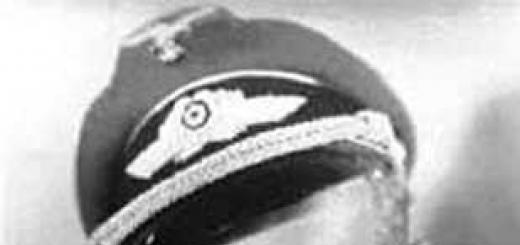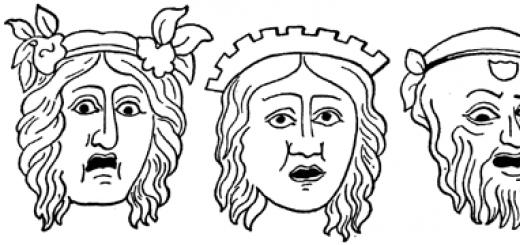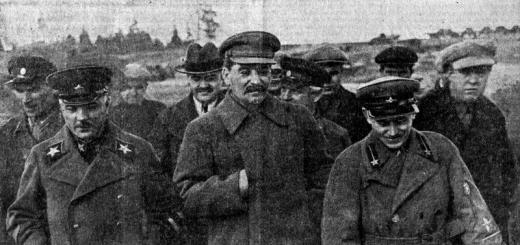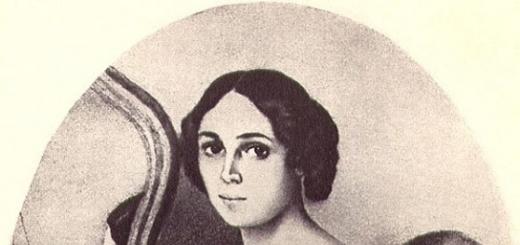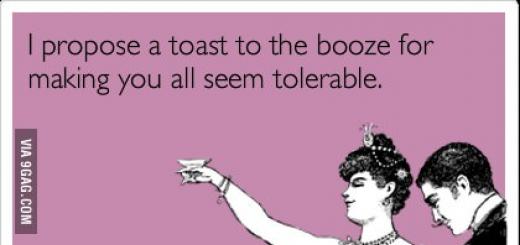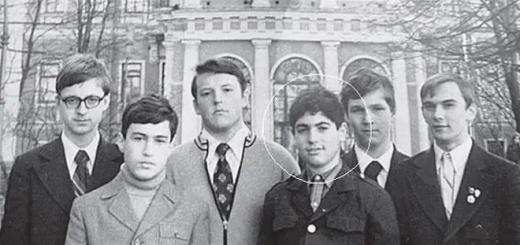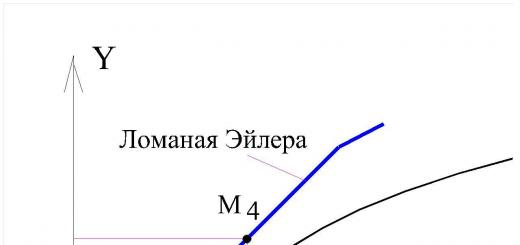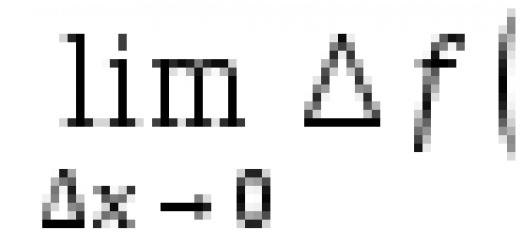Khrushchev's son was shot as a traitor to the Motherland. (With)
I found a good article about Khrushchev and Stalin, which explains more on the basis of memories the hatred of the former for the latter. Everyone knows that the reason was Khrushchev’s son. Here it is more clear why.
We know that Stalin's son Yakov was captured. Khrushchev's son was also captured.
In March 1943, another Kremlin pilot, Leonid Khrushchev, passed away. The former commander of the 303rd Air Division, Hero of the Soviet Union, Aviation Major General G. N. Zakharov, told me about his fate and the last months of combat work.
The pilot Khrushchev came to Georgy Nefedovich immediately after the tribunal. How it happened, who knows, but he shot someone in a restaurant.
Gribanov S. S. 232
Mom and Dad had three children together - me, Seryozha and Lenochka. Two from his first wife - Yulia and Leonid, they were much older. Leonid’s daughter, also Yulia, was close to us in age, and we perceived her as a sister. The Khrushchevs adopted Yulia after the death of her father.
Leonid lived in Kyiv, worked at a pilot school. During the war he took part in massive raids on Germany. Unescorted raids. He was seriously wounded and was in a hospital in Kuibyshev - then our whole family was in Kuibyshev, in evacuation, and my father was at the front. Leonid lay in the hospital for a long time, in the same room with Ruben Ibarruri. They were friends. It took a long time for my brother to recover. They drank in the hospital, and the brother, drunk, shot a man and ended up on court martial. He was sent to the front line.
R. Khrushchev (daughter of N. S. Khrushchev).
Quote by: Vasilyeva L. S. 132
Stalin became aware of this. Khrushchev, as a member of the Military Council of one of the fronts, the first secretary of the Central Committee of the Communist Party (Bolsheviks) of Ukraine, began to save his son from punishment. At a meeting with Khrushchev, Stalin asked him: “Are you interceding for your son as a member of the Politburo or as a father?” “Like a father,” Khrushchev answered. Then Stalin asked him a question: “Have you thought about the father whose son your son killed? What will he say?
E. Dzhugashvili (grandson of Stalin)
Nikita Sergeevich, they say, asked Stalin for his son, to which he replied: “What you earn, get it...”
Gribanov S. S. 232
Stalin was not interested in the details of the incident. He was firmly convinced that Khrushchev’s son was to blame for what had happened. This is not the first time that, in a fit of alcoholic stupor, he pulled out a gun and ran into someone.
Dokuchaev M. S. 342
At the beginning of 1941, a similar thing had already happened to him; he had to stand trial, but thanks to his father, he avoided not only punishment, but also trial...
Dokuchaev M. S. 342
The war dictated wartime laws, and they were law for everyone. Leonid, an officer, was demoted to private and sent to a penal battalion. Soon he was captured. The Germans, having learned that the son of a Politburo member was among the prisoners, began to use him for propaganda in the front line: speaking on the radio, he agitated Soviet soldiers and officers to surrender... The matter took on a political nature. Stalin instructed the head of the Central Headquarters of the partisan movement, P.K. Ponomarenko, to kidnap Khrushchev’s son from the Germans. When Stalin was informed that Leonid had been delivered to the location of one of the partisan detachments, and they asked for a plane to deliver him to Moscow, Stalin replied: “There is no need to risk another officer, judge Leonid Khrushchev on the spot.” Khrushchev's son was shot as a traitor to the Motherland.
After Stalin’s death, Khrushchev carefully concealed this fact, and even a rumor was started that the pilot Leonid Khrushchev died a heroic death in a battle with several German fighters. We know how to spread rumors.
E. Dzhugashvili.
Quote by: Alliluev V. S. 159–160
Khrushchev was an opponent of Stalin at heart... He was embittered at Stalin because his son was in such a situation that he was shot... Stalin did not want to pardon his son... After such embitterment, he will do anything to dirty his name Stalin...
V. Molotov.
Quote by: Chuev F. S. 324
Khrushchev himself, being a member of the Military Council of the southwestern direction, that is, the armies fighting near Kharkov, at a critical moment when the Germans surrounded our troops, abandoned the front and fled to Moscow. He was threatened with being tried by a military tribunal. Molotov saved him from punishment.
Well, in one of his post-war speeches, Stalin called Khrushchev a moron. Perhaps all this later, after Stalin’s death, resulted in open hatred of Stalin, and Khrushchev began to instill it among the people.
Khrushchev was a vindictive man. Taking revenge on Stalin, he took revenge on his children.
E. Dzhugashvili.
Quote by: Alliluev V. S. 159–160
Memories of loved ones about Stalin.
Leonid Khrushchev volunteered for the army during the Soviet-Finnish war. In 1943, he was already a senior guard lieutenant and fighter pilot. In March, he went on a combat mission from which he did not return. In April, Stalin ordered him to be considered dead.
A decree was issued to award the brave officer the Order of the Patriotic War, first degree. But a few years after Nikita Khrushchev's campaign against Stalin's personality cult began, rumors began to spread that Leonid Khrushchev was not a hero at all.
Death in battle
The official version of the death of Leonid Khrushchev is set out in his personal file. The combat officer, already nominated for the Order of the Red Banner in November 1941, commanded a flight in the 18th Guards Fighter Regiment from December 19, 1942.
On March 11 of the following year, his plane was shot down near the city of Zhizdra. Then it was Smolensk, and now it is Kaluga region.
The squadron commander wrote in the report: “Two of our aircraft (the leading guard, Senior Lieutenant Zamorin, and the leading guard, Senior Lieutenant Khrushchev) were attacked by two Focke-Wulf 190s.” An air battle ensued at an altitude of approximately 2500 meters - pair against pair.” A German plane fired at Khrushchev's plane. Zamorin began firing at the enemy with a machine gun: “The German, seeing his disadvantageous position, left Khrushchev and, attacked by Zamorin, went south. When Zamorin returned, he did not find Khrushchev. Our planes were flying in the distance, Zamorin decided that Khrushchev was among them, and joined the general formation.”
However, Khrushchev did not return to duty. The search for the body or wreckage of the plane also yielded no results. The parents received a sad letter. The commander of the 1st Air Army, Khudyakov, wrote: “The circumstances under which he did not return, and the period that has passed since that time, force us to make a sad conclusion that your son died a brave death in an air battle.”
Later, the fact that no one saw the plane crash and no wreckage was found became the subject of many speculations. However, during the war, the number of fighters who passed under the “did not return from mission” column was in the thousands. The aircraft were often of poor quality, assembled in difficult conditions, and the squadron pilots were focused on flying their aircraft and did not have time to notice what was happening around them. According to Zamorin's report, Khrushchev's plane went into a tailspin. But he had the opportunity to use a parachute, and, with a successful combination of circumstances, to bring the plane out of a spin. These formulations later provided food for many versions.
Shot for crimes
In 1941, Leonid Khrushchev was wounded in battle. He was able to reach the neutral zone and land the plane. For this he was nominated for an award. He went to Moscow to receive it. There, at a party, he was rumored to have killed an officer while drunk. According to another version, the murder occurred in Kuibyshev, where Leonid was being treated in a hospital. Khrushchev allegedly killed one of his fellow circus performers.
The authors of such versions write that Leonid Khrushchev had a difficult relationship with the law back in the 30s. Allegedly, he once got involved with Kyiv bandits. For example, counterintelligence officer Vadim Udilov wrote: “Even before the war, he got involved with bandits in Kyiv. They were caught and shot by court, but the son of Nikita Sergeevich, the first secretary of the Central Committee of the Communist Party of Ukraine, “miraculously” escaped punishment.” Sergo Beria even hinted that Leonid managed to serve ten years for associating with a gang, despite the fact that there is no evidence of this.
However, in the Komsomol characteristics for 1940, the most terrible offenses of Leonid Khrushchev were “indiscipline and drunkenness” (1937) and “arrears in membership dues” (1940).
They wanted to put Leonid Khrushchev on trial for the murder of Leonid Khrushchev during a drunken party, but, as supporters of the version write, Nikita Khrushchev was lying at Stalin’s feet and begging to spare his son. Here again the differences begin. According to one version, Stalin spared the life of young Khrushchev and sent him to the front, but according to another, he refused to pardon him. The author of the second version is KGB General Dokuchaev. “Stalin was informed that Khrushchev’s son Leonid, a military pilot, had committed a serious crime for which capital punishment was imposed.<...>Khrushchev began to cry, and then began to sob. They say, the son is to blame, let him be severely punished, just not shot... Stalin said: in the current situation, I can’t help in any way,” Dokuchaev noted.
Shot for treason
An equally loud version was brought to life by Zamorin’s cautious report. It is believed that Leonid Khrushchev was able to land the plane, but was captured. Then the story becomes almost detective. Stalin allegedly ordered the kidnapping of Khrushchev's son so that he would not tell the enemy valuable information about the life of the Kremlin elite. “Stealing” was entrusted to the famous Pavel Sudoplatov.
Documents were collected confirming the betrayal, and the tribunal of the Moscow Military District sentenced Leonid Khrushchev to death. However, no supporting documents were found in the archives of the institutions. Sudoplatov himself directly stated that he did not participate in the operation to “kidnap” Leonid Khrushchev; moreover, “Stalin personally decided to consider Leonid Khrushchev as killed during a combat mission, and not as missing. In those conditions, this was important for the political career of N. S. Khrushchev, and excluded the possibility of compromising one of the members of the Soviet leadership by this episode.”
According to other versions, in captivity Leonid Khrushchev went over to the side of the Germans. And he was not kidnapped, but exchanged for a German prisoner of war. A supporter of this version, N. Khotimsky, wrote: “The exchange took place, but as KGB workers established, when Leonid Khrushchev was in the filtration camp<...>, in captivity he behaved badly<...>. Based on the totality of the crimes committed, L.N. Khrushchev was convicted by a military tribunal and sentenced to death.”
Supporters of the execution version believe that the fight against Stalin’s personality cult was Khrushchev’s revenge for his son.
According to the son of Leonid Khrushchev, search teams made an important discovery: “Bryansk search engines discovered the wreckage of an airplane identical to the one on which my father flew, approximately at the site of his last battle. The remains of the pilot, or rather, his uniform, were also found. They correspond to the official list of items of clothing that Leonid Khrushchev wore on his last flight.” Perhaps, in fact, Leonid Khrushchev died the way many thousands of not so famous soldiers and officers died during the war.
Nikita Khrushchev's report on exposing the cult of personality had an indelible effect on the country. But why did he actually decide to do this: was it a family tragedy or big politics? How did Leonid Khrushchev die, and what is hidden behind the rumors about his desertion? The Moscow Trust TV channel prepared a special report.
"Golden Child"
Rada Khrushcheva had just finished 4th grade. The holidays have begun, and the family moves to a dacha 20 km from the city.
“My father was not in Kyiv, I thought that he was traveling around the Ukrainian regions, but it turns out he was in Moscow,” says daughter N.S. Khrushchev Rada Adzhubey.
Nikita Khrushchev returns to Kyiv with only a few hours left before the war. His daughter Rada recalls that their government dacha unwittingly served as a landmark for the Germans when they flew to the capital.
Leonid Khrushchev
“These were three large white houses, the roofs were covered with camouflage netting. We saw a formation of bombers flying and turning towards Kyiv,” recalls Adzhubey.
During these days, Rada's elder brother, bomber pilot Leonid, was not at home - he was at the location of his unit. By the beginning of the war, he was one of the most experienced here: after air force school in 1940, he volunteered for the Soviet-Finnish war and managed to fly dozens of combat missions.
Historian-publicist Nikolai Dobryukha has been researching the fate of the son of Secretary General Nikita Khrushchev for many years.
“I am one of the few to whom senior state security officials revealed many secrets and helped obtain unique documents. KGB Chairman Vladimir Semichastny, whom I helped write and publish reflections in central newspapers, spoke directly with Nikita Sergeevich about Leonid,” says Dobryukha.
Leonid is Khrushchev's son from his first marriage. His mother died early, and his father soon ends up in the Civil War, where he serves in the Red Army.
“The boy grew up without a father and without a mother, was left to his own devices and had sufficient material opportunities. This had a bad impact on his fate. When Khrushchev was the first secretary of the Central Committee of the Communist Party of Ukraine, Leonid got involved with bandits and took part in robberies. He was very brave, and there was a case when he, holding onto the bridge supports, moved from one bank of the Dnieper to the other,” says Nikolai Dobryukha.
"Missed"
When the Great Patriotic War began, Leonid was already in the rank of lieutenant. In the first week he makes 12 combat missions. But he soon fell out of action - on July 27, 1941 he had to make an emergency landing.
Hero of the Soviet Union, test pilot Stepan Mikoyan met Leonid in the hospital, which was located in the rear in Kuibyshev.
“I was injured as a result of the landing - a broken leg, burns, and after the hospital I was sent for outpatient treatment, where we met,” Mikoyan recalls.

On the podium of the V.I. Lenin mausoleum (from left to right) N.S. Khrushchev, I.V. Stalin, V.M. Molotov and N.M. Shvernik. Photo: ITAR-TASS
Despite the fact that both are children of the country's ruling elite, they are meeting for the first time. Mikoyan pays attention to Khrushchev because he is in a pilot’s uniform. It turns out that Leonid has been in the hospital for more than a year.
“They sat down in no man’s land, killed the shooter, and they pulled him out with difficulty, because the Germans could have intercepted him. In the field hospital they wanted to cut off his leg, but he wouldn’t let it, threatening the doctor with a pistol,” says Stepan Mikoyan.
The leg is healing slowly: soil got into the wound and infection began. He is often visited by his family, who were just evacuated to Kuibyshev. Rada adored her brother. To entertain her, he often talked about his flights.
“As strange and funny as it may seem, they flew to bomb Berlin unaccompanied. It was suicide. Most of their planes were destroyed at the airfields, and those that remained could not resist the German Messerschmitts,” says Rada Adzhubey.
Unexpectedly, Leonid was presented with the Order of the Red Banner. The order was signed after that emergency flight, when he was able to reach the neutral zone and was not captured. Leonid goes with his whole family to Moscow to receive the award. Stepan Mikoyan learns much later from his friends about what will happen to Leonid at the party. Leonid himself, when they meet again in Moscow, will not say a word about this. From this moment on, white spots appear in the biography of N.S.’s son. Khrushchev.
“During one of the sprees, there was a lot of drinking, and they began to compete to see who was the better shooter. Leonid boasted that he could knock a bottle off a person’s head. They appointed some officer, and he accidentally killed him. Leonid was put on trial,” says Nikolai Good belly.
He still continues to serve in the army, and even receives a transfer to an elite fighter aircraft.
“Due to the fact that the son of such a high-ranking leader, the case was deliberately confused, and he was given only 8 years. But such documents actually exist in the Samara regional archive. There is no direct evidence that it was Leonid who shot. But, nevertheless, all the group that took part in that party was arrested, there was a trial,” says Dobryukha.
Deserter or hero?
The fact that Leonid was not put on trial is considered by the historian Nikolai Dobryukha to be a personal merit of his father. He begged for his son to atone for his guilt.
“Khrushchev, on his knees, begged Stalin to spare his son, even grabbed Stalin by the legs, and he ordered the guards to call doctors for Khrushchev, saying that he had lost his composure, fearing for the fate of his son,” Dobryukha claims.
When Stepan Mikoyan heard the story about the fatal shot, he was surprised: this is not how he remembered Leonid.
“I must say that he loved to drink, but he became even kinder than he had been, did not swear and quickly fell asleep,” says Mikoyan.
Khrushchev is not sent to a penal battalion. He is retraining from a bomber to a fighter and is eager to go into battle.
“There were such cases during the war. We had one pilot in our regiment who, for a drunken brawl, received several years of service at the front. And he flew with us and fought, although he was convicted. So this was the norm for officers then,” - says Stepan Mikoyan.
It took Leonid less than 3 months to study, and after that he managed to fly only 7 combat missions.
“A fighter can fly on anything, but the opposite is not always the case. Apparently, Leonid did not fully master the new things when he ended up in a fighter regiment. I was in another regiment then, and the pilot Kolya Zhuk was sent to us, who had previously served with "Leonid. He said that Khrushchev was chasing a German plane, and at that time a German attached himself to his tail, fired a burst, Leonid turned over and began to dive down," says Mikoyan.

Leonid Khrushchev
This happened near the city of Zhizdra, Kaluga region, on March 11, 1943. The remains of the plane could not be found; the area was completely covered with swamps. Nikolai Dobryukha knows another version of those events. It was told to him by Ivan Stadnyuk, a front-line correspondent, screenwriter of the films “Maxim Perepelitsa” and “I Serve the Soviet Union!”
“Stadnyuk said that he saw documents that clearly stated that Leonid, who was shot down (or not shot down, but flew over to the side of the Germans), was kidnapped from captivity and brought to trial. The court, despite Khrushchev’s appeal to Stalin, did not acquit him, and Leonida shot. That is, it was an execution. I have not seen such documents, they are classified," Dobryukha claims.
Disputes among historians do not subside. The wording “missing in action” was the most terrible during the war. Andrei Svitenko adheres to the official version of the death of Khrushchev Jr.
“As Serpilin said in the person of Anatoly Papanov in the film, “I’m not afraid of death, I can’t go missing.” If there is such a wording, suspicions are immediately born that he has joined the enemy’s camp,” explains Svitenko.
Central Archive of the Ministry of Defense. All documents from the war period are stored here. Olga Chasovitina has been working in this repository for 30 years, where reports, orders, award certificates and lists of Soviet pilots are collected. There is no separate case of Leonid Khrushchev here. His documents in the chronicle of military operations are included in the general list; they were declassified back in the early 60s.
“We keep primary sources: documents of regiments, divisions. Nothing disappeared from us and it was impossible to correct anything. If some matter is needed, a decree is drawn up with a number and date, and then the matter is returned,” says Chasovitina.
“He was awarded on February 20, 1942. Because of his injury, he was in the hospital, the paperwork took a long time, and the awarding happened later. He was not in the regiment, although the commander of the 134th regiment petitioned for him to return to them. But he went for retraining ", says Olga Chasovitina.
Revenge of the Fallen
1956 XX Congress of the CPSU. Speech by Secretary General Nikita Khrushchev. At first, the text does not foreshadow anything; Khrushchev makes a report on the debunking of the cult of personality at the end of the congress, when it is already officially completed. This happens on February 25th in a closed meeting. The most curious thing is that Stalin’s name was not directly mentioned.
“The motivation for this report was hostility towards Stalin, he never hid it. He constantly talked about him, over the many years of acquaintance he had something to say - he assessed his moral qualities, wrote about “games at court” - how they put a tomato on someone who got up from his chair , and he sat on him, they laughed like that. Such artless morals reigned. And things are more serious, young people need to know what kind of country we live in, that leaders always slept with a suitcase ready, always ready to be taken away from 2 to 4, like this was usually done,” says Andrey Svitenko.

XX Congress of the CPSU, 1956. Photo: ITAR-TASS
Stalin's repressions affected almost every second family in the Soviet Union. Khrushchev's report caused a lot of noise, although it was not published anywhere until Perestroika. Its contents were transmitted orally.
“Yes, this was not any revenge on Stalin, he was his student, comrade-in-arms, he was brought up in this. But he found the strength to take this step,” says Rada Adzhubey.
Would Khrushchev have decided to take such a step if there had been incriminating evidence against him? In the inner circle, since the death of Stalin, there has been a struggle for power. Leonid's plane has not yet been discovered - this is a reason to undermine the authority of the current Secretary General. But no one will use it.
“Only those who have no idea what Stalin and Khrushchev were, their relationship, can believe in this. There were many rumors about Leonid’s death. His daughter, Yulia, sent a request to the prosecutor’s office, but a letter came from there that nothing like that happened” - says Adzhubey.
The death of Leonid Khrushchev affected the service of his friend Stepan Mikoyan. He is less often taken to the front line. The “golden youth” will be secretly protected from bullets.
“When my brother died, Timur Frunze, Leonid Khrushchev, I was on the North-Western Front. And Stalin took care of his son Vasily and me. And I didn’t understand why they didn’t take me, I thought that I was less prepared than other pilots But after the war, Vasya himself told me about this,” recalls Mikoyan.
All unofficial versions of Leonid's fate have one weak point. Why didn’t the enemy take advantage of the desertion of the son of the then leader of Ukraine?
“Here is Yakov Dzhugashvili - millions of copies of leaflets were scattered about him. And about Molotov’s son, that he was in captivity. But here - nothing,” says Andrei Svitenko.
The search for Leonid Khrushchev's plane is still ongoing. It seems that only his discovery can put an end to this story. And yet, Leonid’s wife was arrested after he disappeared. Nikita Khrushchev will raise his daughter as his own. She will call him father in front of everyone. And the younger sister Rada believed for a long time that one day her brother would return.
“I’m walking home from school late in the evening (I studied in the third shift), and I think: when I come, his leather jacket is hanging on a hanger...” says Rada Adzhubey.
March 11, 1943. The aircraft of the 18th Guards Fighter Aviation Regiment did not return from a combat mission. War... Nothing surprising. The plane was piloted by Senior Lieutenant Leonid Khrushchev. The spring of 1943 is the height of the Great Patriotic War. Combat pilots died constantly, in large numbers. But the command of not only the 18th Guards Fighter Aviation Regiment, but also the 303rd Fighter Aviation Division, was seriously alarmed. 25-year-old senior lieutenant Leonid Khrushchev was the eldest son of Nikita Sergeevich Khrushchev, who at that time served as the first secretary of the Central Committee of the Communist Party of Ukraine.
The site of the alleged crash of the plane piloted by Leonid Khrushchev was studied thoroughly - even local partisans were involved. But neither the plane's wreckage nor the pilot's body were found. Leonid Nikitovich Khrushchev went missing. The fate of the son of the future Soviet leader is still unknown. The official version says that he was captured and died in a German camp - like Joseph Stalin's son Yakov Dzhugashvili. If this really was the case, then this explains a lot - including why neither the plane nor the body of Leonid Khrushchev were found.
Nikita Sergeevich Khrushchev, the future General Secretary of the CPSU Central Committee, was married three times in his life. He married for the first time in 1914, while still a twenty-year-old young man - a mine mechanic. His wife was Efrosinya Ivanovna Pisareva, who gave birth to Nikita Khrushchev two children - daughter Yulia in 1916 and son Leonid in 1917. In 1920, Euphrosyne died of typhus. Young Khrushchev was left with two children, but in 1922 he married a certain Marusa, a single mother. Nikita Sergeevich lived with her for a short time and already in 1924 he got married to Nina Kukharchuk, who became his companion for the rest of his life. Thus, Leonid Nikitovich Khrushchev was the son of Nikita Sergeevich Khrushchev from his first marriage. He was born on November 10, 1917 in Yuzovka, where Nikita Sergeevich lived and worked at that time.

Nikita Khrushchev's career took off rapidly from the early 1930s. If in 1922 Nikita was still a modest student at the workers' faculty, then in 1929 he entered the Industrial Academy and was elected secretary of the party committee. In 1931, 36-year-old Nikita Khrushchev became the first secretary of the Baumansky district committee of the All-Union Communist Party (Bolsheviks) of Moscow - a colossal position for yesterday’s provincial party leader. By this time, Leonid Khrushchev was almost fourteen years old. Now the son of a prefect of some capital district will have a bright future in an elite university - Russian or foreign, and then a successful business or a quick career in government. Then, in the 1930s, there were slightly different orders. Leonid Khrushchev, having studied at the school for working youth, went to work at a factory. Apparently, like his father, Lenya Khrushchev was “young and early” - by the age of 18 he had already been married twice. The first wife was Rosa Treyvas, but Leonid broke up with her quickly - under pressure from Nikita. Married to his second wife Esther Naumovna Etinger, 17-year-old Leonid Khrushchev had a son, Yuri Leonidovich (1935-2003). 
“First of all, the planes, and then the girls,” was sung in a popular Soviet song of those years. But Leonid Khrushchev’s girls appeared a little earlier than the planes. In 1935, 20-year-old Leonid entered the Balashov School of Civil Air Fleet pilots, from which he graduated in 1937 and began working as an instructor pilot. In 1939, Leonid voluntarily asked to join the Red Army and was enrolled in the preparatory course of the command department of the Air Force Academy. Zhukovsky, but did not study at the academy, limiting himself to graduating from the Engels Military Aviation School in 1940. When the Soviet-Finnish war began, Leonid Khrushchev asked to go to the front.
The young officer was a brave pilot. He made more than thirty combat missions, flew an Ar-2 aircraft, and took part in the bombing of the Mannerheim Line. Naturally, when the Great Patriotic War began, Leonid Khrushchev went to the front. He fought from the beginning of July 1941 - as part of the 134th Bomber Aviation Regiment, which was part of the 46th Aviation Division. Already in the summer of 1941, Khrushchev Jr. made 12 combat missions and was nominated for the Order of the Red Banner.
On July 27, 1941, Leonid Khrushchev's plane was shot down near the Izocha station. The pilot barely managed to reach the front line and landed in no man's land, receiving a serious leg injury upon landing. Leonid was out of action for almost a whole year. Leonid was sent to Kuibyshev to restore his health. Another Soviet combat pilot from a high-ranking family, Stepan Mikoyan, the son of the People's Commissar of Foreign Trade of the USSR Anastas Ivanovich Mikoyan, was also treated there after severe injuries. Leonid Khrushchev and Stepan Mikoyan became friends. In February 1942, Leonid Khrushchev finally found a reward. The senior pilot of the 134th Bomber Aviation Regiment, Lieutenant Khrushchev, was awarded the Order of the Red Banner for 27 combat missions and bombing of German tanks, artillery and crossings in the Desna region.

It was at a time when Leonid Khrushchev was in the rear that the first strange thing happened, the authenticity of which is still unknown. The veracity of this story is supported by the fact that both Stepan Mikoyan, a close friend of Leonid, and Rada Adzhubey, Nikita Sergeevich’s daughter from his third marriage and Leonid’s half-sister, spoke about it. Allegedly, while undergoing recovery in the rear, Leonid Khrushchev, like many soldiers and officers waiting to return to the front, whiled away the time in drunken feasts. On one of these evenings, he amused himself by shooting at a bottle and, through negligence, shot one of his drinking companions, a military sailor. Leonid Khrushchev was arrested and given 8 years - to be served at the front. It was inappropriate to send a good combat pilot, a medal bearer, and even the son of the first secretary of the Communist Party (Bolsheviks) of the Ukrainian SSR to the camp. Leonid, who had not yet fully recovered from his wound, was sent to the front and enlisted in the 18th Guards Fighter Aviation Regiment - the same one that included the French Normandie-Niemen pilots. Again, we note that this is an unofficial version, which some sources do not share.
Be that as it may, in December 1942, Leonid Khrushchev again found himself at the front. He managed to fly 28 training and 6 combat missions and participate in 2 air battles before he disappeared on March 11, 1943. After a month and a half of unsuccessful searches, the name of Leonid Khrushchev was excluded from the lists of the military unit, and in June 1943 he was posthumously awarded the Order of the Patriotic War, 1st degree. Then very interesting events begin. It would seem that the family of the deceased war hero, and even the son of the main communist of Ukraine, should have been basking in honors.
But, soon after the tragedy that happened to Leonid Khrushchev, his wife Lyubov Sizykh was arrested. No one was even embarrassed by the fact that the widow of the deceased pilot had a daughter from Leonid - at that time three-year-old Yulia Leonidovna Khrushcheva. Nikita Sergeevich could not or did not want to protect his daughter-in-law. Lyubov Sizykh was accused of espionage and sent to a camp for five years. She served her sentence “from bell to bell,” and after the camp, in 1948, she was left in exile in Kazakhstan and was finally released only in 1956, having spent thirteen years in places of imprisonment and exile. What was it and why did they do this to the hero’s widow and the mother of his little daughter? Was Lyubov Sizykh really a spy, a traitor to the Motherland? But what data could she relate to? And why wasn’t she pardoned, at least for the sake of her husband’s memory and for the sake of her daughter?
Vadim Nikolaevich Udilov served in state security agencies for almost forty years, completing his service with the rank of major general and deputy head of one of the departments of the KGB of the USSR. Back on February 17, 1998, an article was published with his memoirs, in which the former counterintelligence officer told a very interesting version of the “death” of Leonid Khrushchev. Allegedly, Leonid Khrushchev flew to the other side of the front and surrendered to the Germans. The pilot was quickly persuaded to cooperate. Leonid's escape became known in Moscow. Soon, a special group of SMERSH carried out a brilliant operation to capture Leonid. He was brought to Moscow. Nikita Khrushchev also urgently came to the capital from the front. He ran to receive Joseph Stalin personally.
According to the recollections of another high-ranking security officer, General Mikhail Dokuchaev, who served as deputy head of the 9th Main Directorate of the KGB of the USSR, guarding the top officials of the state, Nikita Sergeevich threw a real hysteria at Stalin - with tears in his eyes he begged not to shoot his son. But Joseph Vissarionovich was adamant. It was possible to turn a blind eye to the drunken shooting in Kuibyshev and give the opportunity to atone for guilt at the front with blood. But betrayal is too much. Leonid Nikitovich Khrushchev was shot. Again, this is just one version of the death of Nikita Sergeevich’s son.
But, if everything was as the security veterans later said, then much of what happened next becomes clear. Then there are no questions about the arrest of Lyubov Sizykh - she was convicted as the wife of a traitor to the Motherland and given only five years in the camps (by the way, if Lyubov really was a spy, then in wartime she would have received a much longer sentence or the death penalty). For obvious reasons, Nikita Sergeevich Khrushchev did not stand up for Lyubov Sizykh. Moreover, he distanced himself from her as much as possible and even Lyubov was released from exile only in 1956 - by this time Khrushchev had been heading the Soviet state for three years, what did it cost him to free his former daughter-in-law and the mother of his granddaughter? True, Nikita Sergeevich nevertheless adopted the daughter of Leonid and Lyubov Yulia.
According to the version of Leonid Khrushchev’s betrayal, Nikita Sergeevich took the execution of his eldest son very hard. Although he himself miraculously remained in a leadership position - at that time, any leakage of information that the son of the first secretary of the Communist Party of Ukraine had betrayed the Motherland would have seriously discredited the Soviet government, Khrushchev harbored a grudge against Joseph Stalin for the rest of his life. Nikita Sergeevich’s hatred of Stalin, if we accept this version, was not political, but personal. The all-powerful leader of the Soviet state and the Communist Party turned into a personal enemy for Khrushchev - he could not forgive him for the death of his son.

If this is so, then the reasons for the harsh criticism that Nikita Khrushchev brought down on the late Stalin from the rostrum of the 20th Congress of the CPSU are clear. It turns out that the de-Stalinization of the Soviet state had personal reasons. Of course, it was beneficial for both Soviet dissidents and the West to view de-Stalinization as an “objective process,” which supposedly meant that even the Soviet leaders understood the “criminal nature of Stalin’s regime.” For the same reason, the details of the true fate of Leonid Nikitovich Khrushchev were kept in deep secrecy. It was extremely unprofitable to present Nikita Khrushchev’s son as a traitor, since this would cast a shadow on de-Stalinization itself - that Nikita was guided by personal motives when starting to criticize the Stalinist system.
On the other hand, there is no real evidence in favor of the version of Leonid Nikitovich Khrushchev’s betrayal. Counterintelligence officer Udilov himself said that all documents that could tell about this were carefully destroyed back in Soviet times. In addition, many of Leonid Khrushchev’s contemporaries still adhered to the version that senior lieutenant Khrushchev died in German captivity. Of course, being captured by a Soviet officer, according to the dominant ideology, was not beautiful, but still it is not betrayal. Moreover, if in the end Leonid was really killed by the Nazis.
Yulia Leonidovna Khrushcheva, daughter of Leonid, already in our time - in 2006-2008. - repeatedly filed lawsuits against Channel One. The fact is that back in 2006, the film “Star of the Epoch” was shown on television, which presented a version of the betrayal of Leonid Khrushchev. This outraged Yulia Leonidovna and she demanded compensation for moral damage, but all the courts left the claims of the granddaughter of the Soviet General Secretary without satisfaction. Some observers argued that the memory of Leonid Khrushchev was deliberately denigrated - now, they say, reformers are not in fashion, and the authorities want to rehabilitate harsh methods and an authoritarian style of management. Other analysts are less categorical - who now, more than 70 years later, cares about the fate of the son of the future Soviet general secretary who died young. Now it is no longer possible to assert either the correctness of this version or its fallacy. Along with the Soviet era, many of its secrets have become a thing of the past.
On June 8, 2017 at 10:35, on the Solnechnaya – Vnukovo station section, the Vnukovo – Moscow electric train hit and killed an elderly woman who was crossing the railway tracks in the wrong place. The police identified the deceased as 77-year-old Yulia Leonidovna Khrushcheva, the daughter of Leonid Khrushchev and the adopted daughter of Nikita Sergeevich.
He volunteered for the army during the Soviet-Finnish war. In 1943, he was already a senior guard lieutenant and fighter pilot. In March, he went on a combat mission from which he did not return. In April, Stalin ordered him to be considered dead. A decree was issued to award the brave officer the Order of the Patriotic War, first degree. But a few years after Nikita Khrushchev's campaign against Stalin's personality cult began, rumors began to spread that Leonid Khrushchev was not a hero at all.
Death in battle
The official version of the death of Leonid Khrushchev is set out in his personal file. The combat officer, already nominated for the Order of the Red Banner in November 1941, commanded a flight in the 18th Guards Fighter Regiment from December 19, 1942.
On March 11 of the following year, his plane was shot down near the city of Zhizdra. Then it was Smolensk, and now it is Kaluga region.
The squadron commander wrote in the report: “Two of our aircraft (the leading guard, Senior Lieutenant Zamorin, and the leading guard, Senior Lieutenant Khrushchev) were attacked by two Focke-Wulf 190s.” An air battle ensued at an altitude of approximately 2500 meters - pair against pair.” A German plane fired at Khrushchev's plane. Zamorin began firing at the enemy with a machine gun: “The German, seeing his disadvantageous position, left Khrushchev and, attacked by Zamorin, went south. When Zamorin returned, he did not find Khrushchev. Our planes were flying in the distance, Zamorin decided that Khrushchev was among them, and joined the general formation.”
However, Khrushchev did not return to duty. The search for the body or wreckage of the plane also yielded no results. The parents received a sad letter. The commander of the 1st Air Army, Khudyakov, wrote: “The circumstances under which he did not return, and the period that has passed since that time, force us to make a sad conclusion that your son died a brave death in an air battle.”
Later, the fact that no one saw the plane crash and no wreckage was found became the subject of many speculations. However, during the war, the number of fighters who passed under the “did not return from mission” column was in the thousands. The aircraft were often of poor quality, assembled in difficult conditions, and the squadron pilots were focused on flying their aircraft and did not have time to notice what was happening around them. According to Zamorin's report, Khrushchev's plane went into a tailspin. But he had the opportunity to use a parachute, and with a successful combination of circumstances, bring the plane out of a spin. These formulations later provided food for many versions.
Shot for crimes
In 1941, Leonid Khrushchev was wounded in battle. He was able to reach the neutral zone and land the plane. For this he was nominated for an award. He went to Moscow to receive it. There, at a party, he was rumored to have killed an officer while drunk. According to another version, the murder occurred in Kuibyshev, where Leonid was being treated in a hospital. Khrushchev allegedly killed one of his fellow circus performers.
The authors of such versions write that Leonid Khrushchev had a difficult relationship with the law back in the 30s. Allegedly, he once got involved with Kyiv bandits. For example, counterintelligence officer Vadim Udilov wrote: “Even before the war, he got involved with bandits in Kyiv. They were caught and, according to a court verdict, shot, but the son of Nikita Sergeevich, the first secretary of the Central Committee of the Communist Party of Ukraine, “miraculously” escaped punishment.” Sergo Beria even hinted that Leonid managed to serve ten years for associating with a gang, despite the fact that there is no evidence of this.
However, in the Komsomol characteristics for 1940, the most terrible offenses of Leonid Khrushchev were “indiscipline and drunkenness” (1937) and “arrears in membership dues” (1940).
They wanted to put Leonid Khrushchev on trial for the murder of Leonid Khrushchev during a drunken party, but, as supporters of the version write, Nikita Khrushchev was lying at Stalin’s feet and begging to spare his son. Here again the differences begin. According to one version, Stalin spared the life of young Khrushchev and sent him to the front, but according to another, he refused to pardon him. The author of the second version is KGB General Dokuchaev. “Stalin was informed that Khrushchev’s son Leonid, a military pilot, had committed a serious crime for which capital punishment was imposed.
Khrushchev began to cry, and then began to sob. They say, the son is to blame, let him be severely punished, just not shot... Stalin said: in the current situation, I can’t help in any way,” Dokuchaev noted.
Shot for treason
An equally loud version was brought to life by Zamorin’s cautious report. It is believed that Leonid Khrushchev was able to land the plane, but was captured. Then the story becomes almost detective. Stalin allegedly ordered the kidnapping of Khrushchev's son so that he would not tell the enemy valuable information about the life of the Kremlin elite. “Stealing” was entrusted to the famous Pavel Sudoplatov.
Documents were collected confirming the betrayal, and the tribunal of the Moscow Military District sentenced Leonid Khrushchev to death. However, no supporting documents were found in the archives of the institutions. Sudoplatov himself directly stated that he did not participate in the operation to “kidnap” Leonid Khrushchev; moreover, “Stalin personally decided to consider Leonid Khrushchev as killed during a combat mission, and not as missing. In those conditions, this was important for the political career of N. S. Khrushchev, and excluded the possibility of compromising one of the members of the Soviet leadership by this episode.”
According to other versions, in captivity Leonid Khrushchev went over to the side of the Germans. And he was not kidnapped, but exchanged for a German prisoner of war. A supporter of this version, N. Khotimsky, wrote: “The exchange took place, but as KGB workers established, when Leonid Khrushchev was in the filtration camp, he behaved badly in captivity. Based on the totality of the crimes committed, L.N. Khrushchev was convicted by a military tribunal and sentenced to death.”
Supporters of the execution version believe that the fight against Stalin’s personality cult was Khrushchev’s revenge for his son.
According to the son of Leonid Khrushchev, search teams made an important discovery: “Bryansk search engines discovered the wreckage of an airplane identical to the one on which my father flew, approximately at the site of his last battle. The remains of the pilot, or rather, his uniform, were also found. They correspond to the official list of items of clothing that Leonid Khrushchev wore on his last flight.” Perhaps, in fact, Leonid Khrushchev died the way many thousands of not so famous soldiers and officers died during the war.
